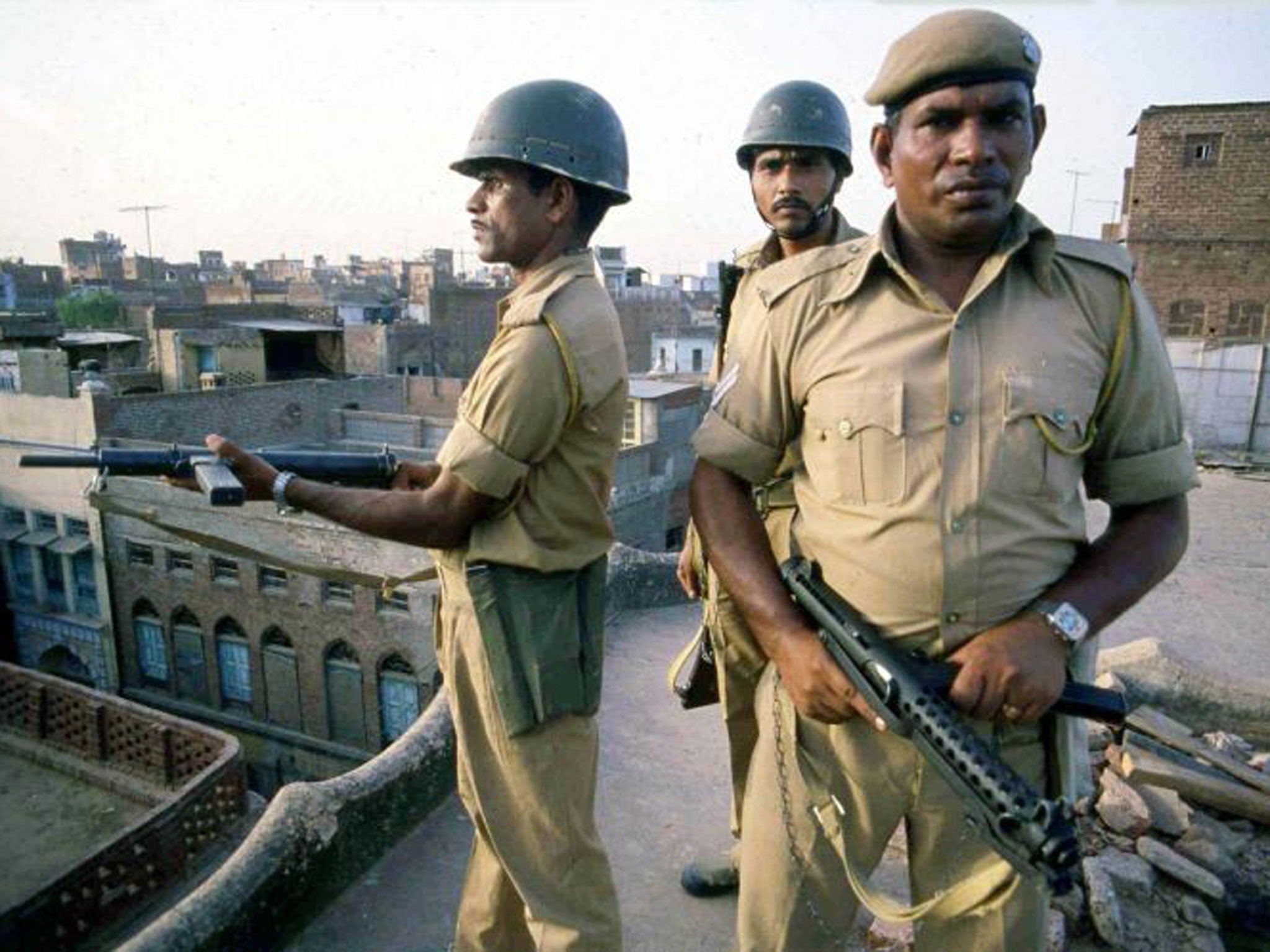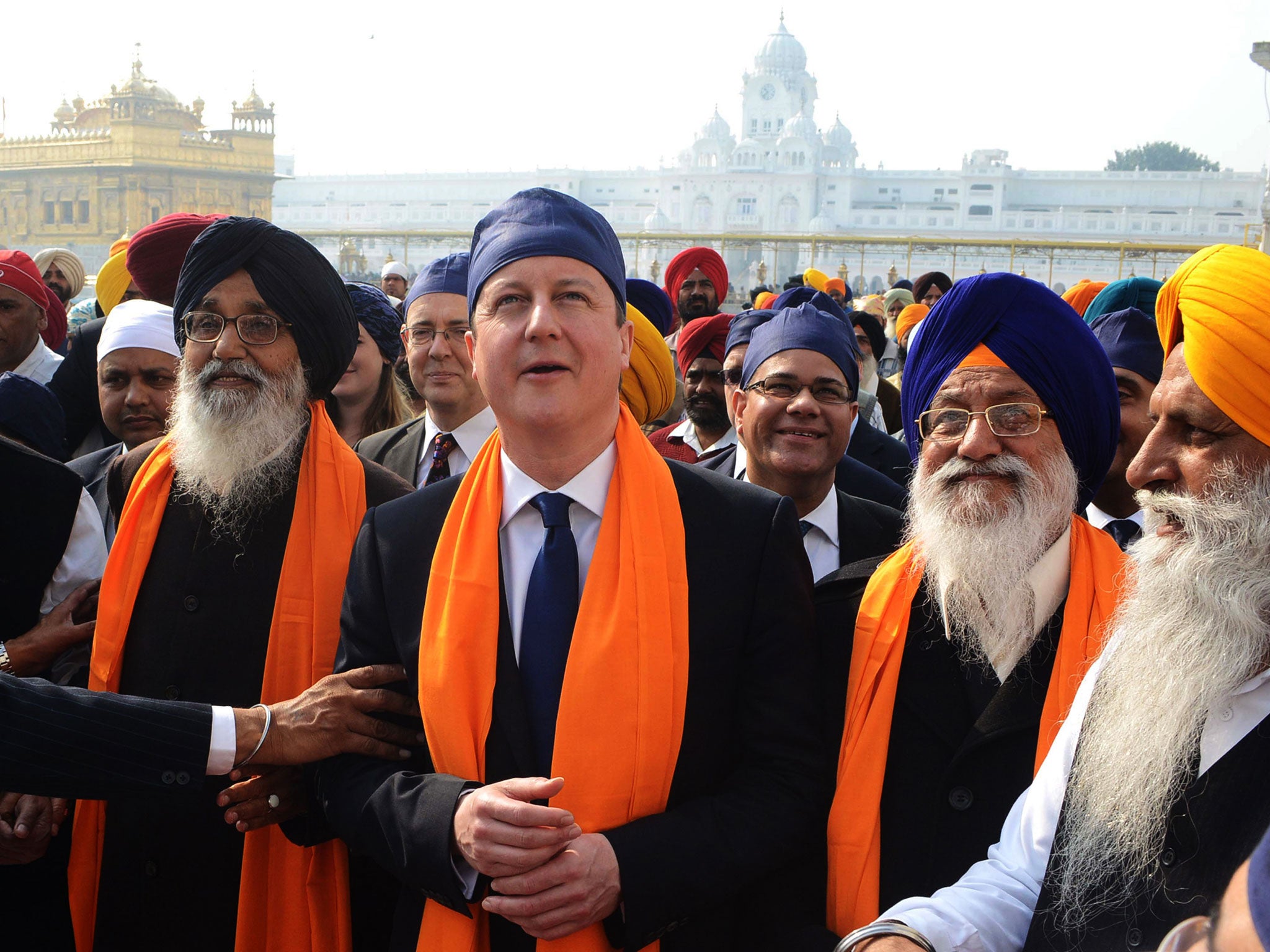Amritsar massacre: David Cameron launches inquiry into ‘SAS involvement’ in 1984 Golden Temple killings
Previously secret documents indicate Margaret Thatcher knew about possible SAS involvement in 1984 Indian army raid

Your support helps us to tell the story
This election is still a dead heat, according to most polls. In a fight with such wafer-thin margins, we need reporters on the ground talking to the people Trump and Harris are courting. Your support allows us to keep sending journalists to the story.
The Independent is trusted by 27 million Americans from across the entire political spectrum every month. Unlike many other quality news outlets, we choose not to lock you out of our reporting and analysis with paywalls. But quality journalism must still be paid for.
Help us keep bring these critical stories to light. Your support makes all the difference.
David Cameron says he has launched an urgent investigation after previously secret documents appeared to show possible SAS involvement in the 1984 Amritsar massacre.
The papers, made public for the first time under the 30-year rule, indicate that a British officer helped the Indian authorities come up with a plan to remove Sikh separatists from the city’s Golden Temple.
Furthermore, they show that figures at the top of the British Government – including Margaret Thatcher – were aware of the SAS’s possible involvement.
It is not known whether plans drawn up by the commando were actually used, with papers dated February 1984 talking about an operation to come “shortly”.
It was June when the Indian army did mobilise to clear out the occupying Sikhs, with catastrophic consequences. The precise death toll from Operation Blue Star is still disputed, from around 400 according to the Indian government to Sikh estimates in excess of a thousand.
Just a few months later, the country’s prime minister Indira Gandhi was assassinated by two Sikh bodyguards, in what many regard was a revenge attack.
The papers, seen by Labour MP Tom Watson and published on the Stop Deportations blog, include a letter disclosing India’s request for British advice, dated 23 February 1984, from Brian Fall, private secretary to then foreign secretary Geoffrey Howe, to Hugh Taylor, his counterpart under home secretary Leon Brittan.
The letter said: “The Indian authorities recently sought British advice over a plan to remove Sikh extremists from the Golden Temple in Amritsar. The Foreign Secretary decided to respond favourably to the Indian request and, with the Prime Minister's agreement, an SAD (sic) officer has visited India and drawn up a plan which has been approved by Mrs Gandhi. The Foreign Secretary believes that the Indian Government may put the plan into operation shortly.”

In an indication of the sensitivity of the matter for community relations in the UK, the letter continued: “An operation by the Indian authorities at the Golden Temple could, in the first instance, exacerbate the communal violence in the Punjab.
“It might also, therefore increase tension in the Indian community here, particularly if knowledge of the SAS involvement were to become public. We have impressed upon the Indians the need for security; and knowledge of the SAS officer's visit and of his plan has been tightly held both in India and in London. The Foreign Secretary would be grateful if the contents of this letter could be strictly limited to those who need to consider the possible domestic implications.”
Mr Cameron and the Foreign Secretary William Hague said they were not aware of the British link to the Amritsar massacre until the files were published.
The Prime Minister now has asked Cabinet Secretary Sir Jeremy Heywood to look into the case and report back to him, with the Government acknowledging the papers raise “legitimate concerns”.
A Government spokesman said: “These events led to a tragic loss of life and we understand the very legitimate concerns that these papers will raise.

“The Prime Minister has asked the Cabinet Secretary to look into this case urgently and establish the facts. The PM and the Foreign Secretary were unaware of these papers prior to publication.
“Any requests today for advice from foreign governments are always evaluated carefully with full ministerial oversight and appropriate legal advice.”
Syed Akbaruddin, a spokesman for India's foreign ministry, said his government was only aware of the story from the media.
“We will take it up with our UK counterparts and seek more information,” he said.
Subscribe to Independent Premium to bookmark this article
Want to bookmark your favourite articles and stories to read or reference later? Start your Independent Premium subscription today.
Join our commenting forum
Join thought-provoking conversations, follow other Independent readers and see their replies
Comments